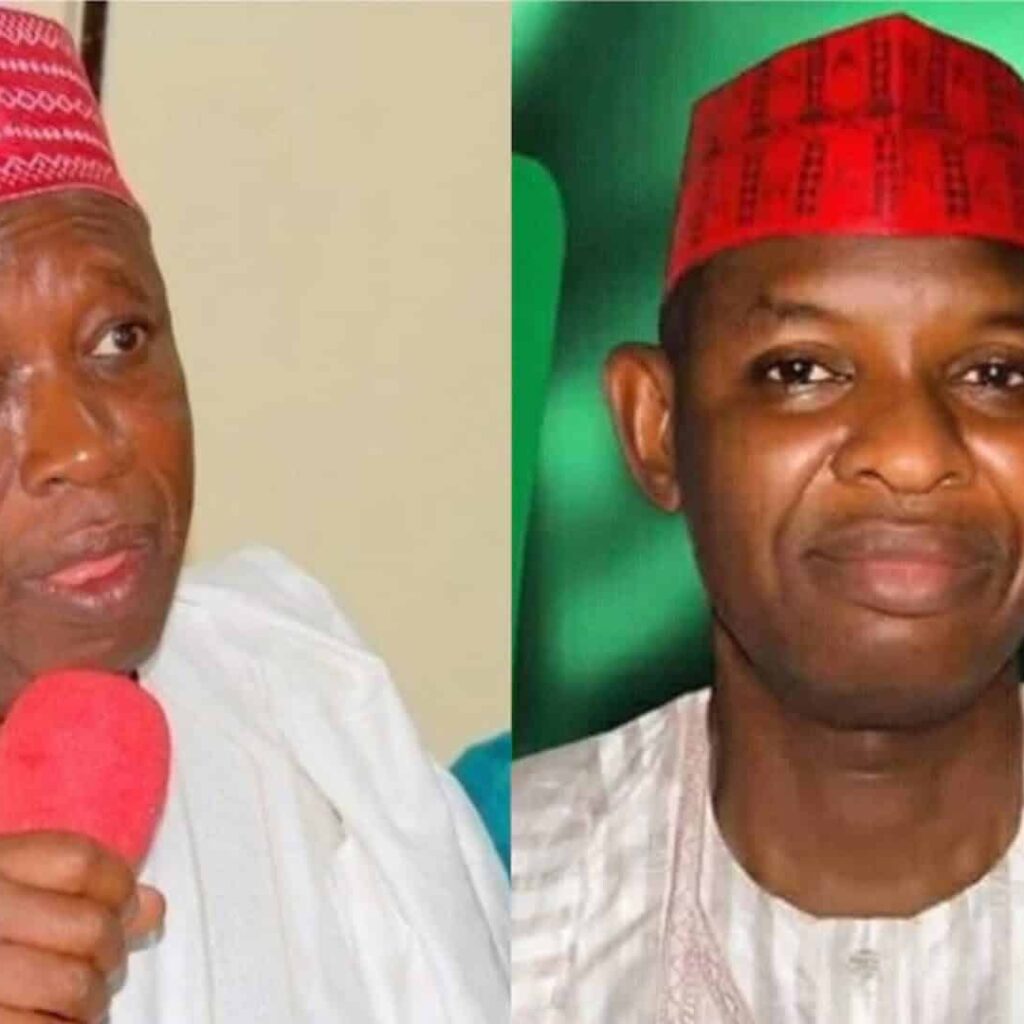
Kano State former Governor, Abdullahi Umar Ganduje, has taken a swipe at his successor in his Eid-el-Kabir message to all Muslim Ummahs in the state.
According to the All Progressives Congress (APC) chieftain, the incumbent governor, Abba Kabir Yusuf, has been making retrogressive progress in Kano since he took over office from him.
Ganduje further lampooned the New Nigeria People’s Party (NNPP), the ruling power in the state, questioning why it reversed some policies established by the previous government he led.
OsunDailyNG understands that Ganduje was reacting to a statement issued on Governor Yusuf’s behalf by the former commissioner for Information and Internal Affairs in Kano, Malam Muhammad Garba, which announced the reversal of some policies by the previous administration in the state.
He noted that at this period of Eid Adha celebrations, for example, the new NNPP government has stopped the salaries of over 10,000 workers employed under his administration for flimsy and unacceptable reasons.
Ganduje said the salary stoppage, which also affected other workers, particularly teachers, some of whom he said were employed more than three months ago, has generated palpable fears in the state civil service for possible layoffs in other sectors.
The former Governor also expressed concern over the cancellation of the promotion of civil servants, especially teachers, and payment of their salaries based on their former grade levels.
The former governor said the state government’s harsh policies’ did not surprise him because he stated that it was part of the plan to avoid paying the new minimum wage, which it once described as an All Progressives Congress (APC) manifesto.
Ganduje noted that the measure was also pointing to the plan by the Abba Yusuf administration to sack the teachers he employed and replace them with their members.
While further sending his Sallah felicitations, he enjoined Muslims to learn from the lessons of the sacrifice which the Eid Adha teaches.

He stressed the need for unity, understanding and support for one another, particularly in this period of economic and social insecurities.


